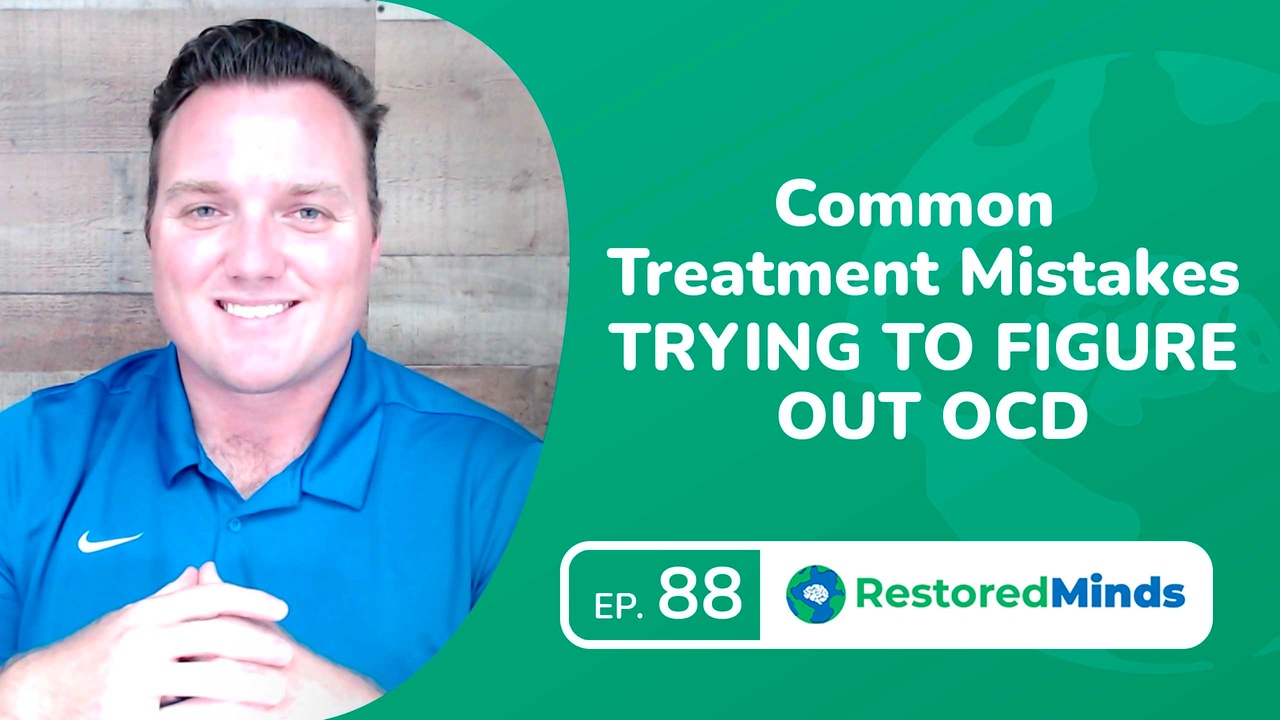Common Treatment Mistakes - Trying to Figure out OCD
Apr 22, 2021
Common Treatment Mistakes: Trying to Figure Out OCD
Understanding the Trap
One of the main problems with OCD and anxiety is the mind’s tendency to go into overdrive. This often leads to behaviors like rumination and analysis, which are attempts to solve whatever fear is currently gripping you. While these tactics can be helpful in everyday problem-solving scenarios, they're counterproductive when dealing with OCD and anxiety. For instance, consider questions like "What if I get cancer?" or "What if I fall out of love with my spouse?" These are "what if" thoughts that are impossible to resolve definitively.
The Psychological Stress Response
These "what if" questions stimulate our stress response. Our brain perceives these thoughts as immediate threats, causing the body to respond with stress and anxiety. However, since the threat is purely hypothetical, all this energy has nowhere to go. This leads to a feedback loop where you continually think, worry, and try to solve a problem that doesn’t really exist, reinforcing your fear and anxiety.
The Illusion of Control
Many people believe that if they can just figure out the answer to their anxiety-provoking questions, they’ll find relief. However, as Matt points out, this is rarely the case. The more you try to dig for answers, the more confusion and stress you generate. In reality, trying to outthink a thinking problem is like throwing gasoline on a fire.
Living in the Present
A more effective approach is to focus on the present. Constantly worrying about hypothetical future events robs you of your current moments. It's crucial to understand that all the mental energy spent on trying to resolve uncertain future events can actually be channeled into more meaningful activities, such as nurturing relationships and pursuing hobbies.
Breaking the Cycle
The first step in breaking this cycle is recognizing it. Many of us live our lives reacting to internal fears and discomforts without realizing that we’re on autopilot. By identifying these behaviors, you can start to make conscious choices that align with how you actually want to live.
Embrace Uncertainty
One of the key takeaways from Matt's video is learning to live with uncertainty. Instead of trying to solve unsolvable questions, embrace the uncertainty. Over time, your anxiety and stress levels will naturally decrease as you habituate to these feelings. This shift in perspective will allow you to see problems more clearly and live more authentically.
Conclusion
Trying to figure out OCD by overthinking and overanalyzing is a common but ineffective strategy. It’s essential to recognize this behavior and focus on living in the present. By doing so, you can break free from the cycle of anxiety and start living a life that aligns with your true desires.


